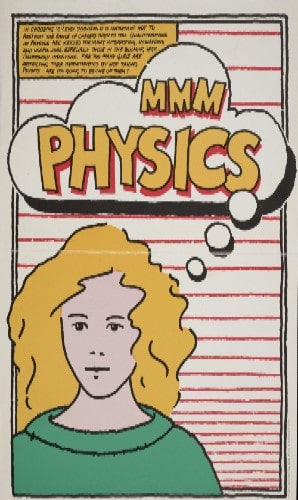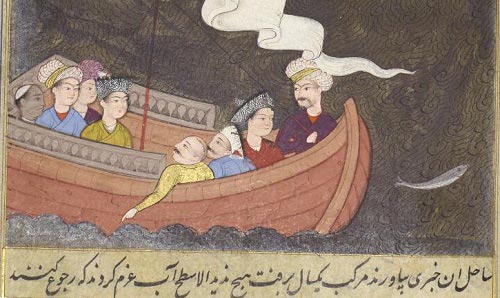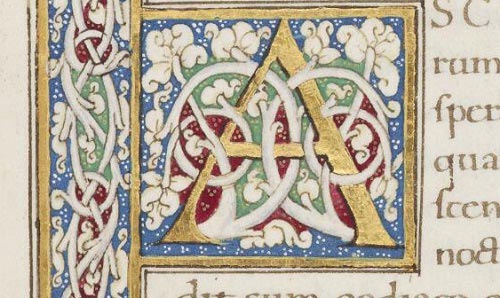
History of Science and Technology Collections
The Library has significant printed and archival collections relating to the history of science and technology, from the ancient world to the 21st century.

These date from the medieval period to the present day, and include the subject areas of chemistry, physics, astronomy, geology, biological sciences, engineering and computing.
The collections are global in scope, but provide particularly extensive coverage of Manchester’s contribution to science and technology since the 18th century.
Among the leading scientists represented in the collections are:
John Dalton, Edward Frankland, Henry Roscoe and Durward Cruickshank (chemistry); Arthur Schuster (physics); William Boyd Dawkins and Marie Stopes (geology); Sir Bernard Lovell and Zdenĕk Kopal (astronomy); Henry Baker, Sydney Hickson and Claude Wardlaw (biological sciences); and Alan Turing, F C Williams and Tom Kilburn (computing).
Chemistry
We have archive collections of several renowned chemists. The manuscript collection of John Dalton (1766-1844) are the largest extant collection for this famous Manchester scientist; they include his research notebooks, correspondence and draft writings. Although Dalton is best known as a chemist, his papers also cover meteorology, optics and physics. There is also an important book of documents relating to Dalton in the Woolley family papers; these were collected by the Johns family in whose Manchester house Dalton resided for many years; this volume includes many personal letters sent by Dalton during his travels in Britain and abroad.
The James Partington Collection is a major printed collection for the history of science. Although it covers many subjects, it is particularly strong for chemistry. Partington (1886-1965) was himself an academic chemist and author of the monumental A History of Chemistry (1964). The collection includes significant works by Lavoisier, Joseph Black, Berzelius, Humphrey Davy, and overall provides excellent coverage of the development of chemistry from the 18th to the 20th centuries.
The Library also has a collection of manuscripts relating to chemical teaching in the Scottish universities in the late 19th century. These currently unlisted manuscripts were mostly collected by William Henry (1774-1836), an associate of Dalton, who undertook pioneering work on gases and was the proposer of Henry’s Law. Henry was influenced by the Edinburgh chemist, Joseph Black (1728-99). Our collection of Joseph Black manuscripts includes Henry’s notebooks of Black’s lectures as well as those compiled by a Lancashire doctor, Robert Dobson.
Henry’s notebooks also include lectures by Thomas Hope (1766-1844), the discoverer of strontium and Black’s successor as professor of chemistry at Edinburgh (English MS 1521). Scottish science is also represented by two notebooks of the chemist and geologist, David Forbes (1828-76), which cover his significant work on the analyses of chemical substances and natural products.
The Frankland family papers are a collection of major significance for chemistry in the UK between 1850 and the 1930s. They comprise the papers of Edward Frankland (1825-99), first professor of chemistry at Owens College, and a key figure in the professionalization of academic chemistry and the papers of son, Percy (1858-1946), and daughter-in-law, Grace (nee Toynbee, 1858-1946), both of whom undertook significant work in public health chemistry and bacteriology.
Henry Roscoe (1833-1915) was Frankland’s successor professor of chemistry at Owens College. Like Frankland, he was a major figure in the professionalization of the discipline and strongly influenced by the examples of the German universities, which emphasised research training in science. His small collection of papers include lecture notes and letter books, which illustrate his wide networks of scientific contacts.
The University of Manchester department of chemistry archive includes the notebooks of the pioneering polymer chemist Professor Geoffrey Gee (1910-96).
The papers of Durward Cruickshank (1924-2007), who was professor of chemistry at UMIST, are important for both chemistry and computing. Cruickshank, who was considered one of the world’s leading crystallographers, also played an important role in the 1950s and 1960s in developing computational techniques for chemical analysis.
Materials Science
Industrial applications of science can be found in the Wedgwood correspondence books. These are 19th-century transcripts of original correspondence of Josiah Wedgwood (1730-95), which are informative about the how this great ceramicist developed processes for his revolutionary pottery ware.
The papers of Robert Hutton (1876-1970), the son-in-law of the Manchester physicist Arthur Schuster, cover developments in electro-chemistry and metallurgy. Hutton lectured at Manchester, before employing his expertise in electric furnace technology in the business world.
Earth Sciences
Geology archive collections are particularly strong for economic geology and geotechnical science.
The Hibbert-Ware manuscripts include papers of Samuel Hibbert Ware (1782-1848) geological surveyor, (English MSS 990-1022). Hibbert-Ware was particularly known for early geological surveys undertaken in Scotland and continental Europe.
The papers of William Boyd Dawkins (1837-1929), first professor of geology at Owens College, illustrate the work of the academic consultant in late Victorian water supply and sewerage schemes. They also include his activities in developing the Kent coalfield, which was inadvertently discovered during an abortive Channel Tunnel project in the 1880s.
Economic geology is also covered in the (uncatalogued) notebook of the Manchester lawyer Edward Binney (1812-81). An amateur geologist, Binney became renowned as an expert on the Lancashire coal measures and contributed to paleobotany through his study of the ‘coal balls’ of fossilised plant material found in these seams. He later became wealthy by patenting a process for manufacturing paraffin oils. The study of coal balls was later taken up by Marie Stopes (1880-1958), when she was a lecturer at the University of Manchester; we have a small collection of photographs of Stopes dating from her Manchester period.
The archives of Edgar Morton (1898-1973) and Peter Rowe (1922-97) constitute the most significant archives on the practice of geotechnical science in the UK; the study of the interaction between engineering structures and earth materials. Morton and Rowe acted as geotechnical consultants on hundreds on civil engineering projects in the UK and beyond from the 1930s to the 1980s. Their archives collectively comprise hundreds of consultancy files for their work on the construction of major roads, dams, reservoirs, power stations, dockyards, sea defences and land reclamation.
Physics, Meteorology and Astronomy
Roger Cotes and William Whiston’s "A course of lectures for the hydrostatical and pneumatical experiments…” (English MS 1494), gave expression to new Newtonian ideas (Cotes was later an editor of Newton’s works).
John Dalton’s manuscripts include a number of papers relating to ‘natural philosophy’ and atmospheric physics. Arthur Schuster (1851-1934) played an important role in the development of physics at the University of Manchester, including recruiting Ernest Rutherford in 1907. His papers provide good coverage of his work at Manchester and his interests in international scientific cooperation.
Historic meteorological data for the Greater Manchester area can be found in two collections: there are three volumes of data collected by Thomas Mackereth (1823-97), a Swedenborgian minister, at Bolton and Eccles during the mid-Victorian period (English MS 1487, uncatalogued) while the records of the Whitworth Meteorological Observatory a weather station operated by the University, provide data for the 20th century.
There are two highly significant collections for astronomy; the Jodrell Bank Observatory archive is an internationally important source for the development of radio-astronomy, while the papers of Zdenĕk Kopal cover astrophysics and solar system astronomy at the height of the Space Age.
Jodrell Bank has been the UK’s main centre for radio-astronomy since the late 1940s. Its extensive archive is currently strongest for the period when the Observatory was led by Sir Bernard Lovell (1913-2012), but material for the post-1980 period is also being added. The Observatory archive includes a comprehensive series of files dealing with the construction and operation of the radio telescopes, research programmes, links with government, funding agencies and other UK research group, and correspondence with other astronomers at home and abroad. The archive provides a considerable amount of information about the development of the post-war radio-astronomy community, especially in the USA and USSR, and includes interesting sidelights on “Cold War” science.
Zdenĕk Kopal (1914-1993) was a Czech-born optical astronomer and astrophysicist, who was appointed the University’s first professor of astronomy in 1950. Although Kopal’s main research interest was close binary stars, he is perhaps best-known for the Manchester Lunar programme, which photographed the Moon’s surface in unprecedented detail, and was used for the detailed lunar maps used in Apollo Moon landings.
William Stanley Jevons (1835-82) is best-known for his highly important contributions to the development of neo-classical economics. However, his papers also detail his eclectic interests in the sciences, particularly astronomy. Jevons proposed some highly original speculations linking economic activity to variations in sun-spot activity.
Biological Sciences and Natural History
Our holdings for the biological sciences include a spectacular collection of printed works on natural history from the early modern period to the nineteenth century. These include a particularly strong collection of ornithological works, including Audubon, Bewick, Buffon, Gould, Temminck and le Vaillant. Many important botanical books and herbals are also part of our holdings including Leonhart Fuchs’s New Kreüterbüch (1543), and Robert Thornton’s Temple of Flora (1799-1807). The major works of Carl Linnaeus and Charles Darwin are also represented.
Archive collections range from the Henry Baker papers which are very informative on the applications of the microscope in studying biological specimens in the 18th century. The marine zoologist Sydney Hickson (1859-1940) was professor of zoology at the University of Manchester; his papers including an important set of notebooks of an expedition to Celebes (Sulawesi) in 1880s to study marine life. Claude Wardlaw (1901-85), professor of botany at the University of Manchester, was an expert in tropical botany and his papers provide invaluable insight into colonial economic botany in mid-20th-century West Indies and Africa.
In addition, there are small collections of papers relating to the naturalist Gilbert White (1720–93), author of The Natural History of Selborne in the English Manuscript series (English MSS 911, 130)and in the Grey (Stamford) of Dunham Massey Papers. We also have an (uncatalogued) album of documents relating to the ornithologist Henry Dresser (1838-1915), author of A History of the Birds of Europe (1871-1896) and an important figure in the bird conservation movement.
Two archive collections provide good coverage of learned groups active in this area in Manchester: the Manchester Natural History Society, which operated between 1821 and 1867, played an important role in collecting natural history specimens; its records are included with the Manchester Museum archive. The Royal Botanical and Horticultural Society of Manchester and the Northern Counties existed from 1827 into the 21st century, and was responsible for Manchester’s (now disappeared) botanical gardens in Old Trafford, and hence played an important part in the civic life of Manchester.
Computing and Mathematics
The History of Computing Collection is a nationally-important resource for computing in the UK since the 1940s. Formerly known as the National Archive for the History of Computing, it is made up of over forty individual collections of personal papers, business and organizational archives and ephemera. It is the largest specialist computing archive in the UK.
Computer scientists and engineers represented in the collection include Alan Turing, F C Williams, Tom Kilburn, Dieter Prinz, Douglas Hartree, Andrew Booth, and Simon Lavington. There are also archives for computer manufacturers and developers including LEO computers, ICL Ltd, British Tabulating Machines Ltd, and public bodies which supported early digital computers such as the National Research Development Corporation.
In addition, the HCC includes two important ‘grey literature’ collections for computer trade literature and computing manuals. These are strongest for the period between the 1960s and 1980s. The manuals collection provides comprehensive coverage of how computing practices were implemented, whilst the trade literature (which includes the USA as well as the UK) provides interesting insights into how computers were marketed and presented to a wider public. They include some fascinating visual representations of workplace computing, before the age of personal computers.
Our holdings for mathematics are mostly focussed in printed works. These include many early modern editions of works by Euclid, Pythagoras and Archimedes. Holdings are also strong for 17th- and 18th-century works by Isaac Newton, Galileo Galilei, René Descartes, and Gottfried Leibniz Blaise Pascal, Leonhard Euler, Jean Le Rond d’Alembert, and John Napier. We also have a collection of notebooks of Horace Lamb (1849-1934). Lamb was professor of mathematics at Owens College, and was noted for his contributions in applied mathematics, particularly in fluid mechanics. His notebooks cover geometry, statics, mechanics, vibrations and algebra.
List of collections
- Joseph Black Manuscripts
- Roger Cotes and William Whiston Lectures
- Durward Cruickshank Papers
- John Dalton Manuscripts
- Department of Chemistry (University of Manchester) Archive
- Sir William Boyd Dawkins Papers
- David Forbes Analysis Books
- Frankland Papers
- Gustave Adolphe Hemsalech Papers
- Hibbert-Ware Papers
- Sydney Hickson Papers
- History of Computing Collection
- Robert Salmon Hutton Papers
- Jevons Family Papers
- Jodrell Bank Observatory Archive
- James Prescott Joule Papers
- Zdenek Kopal Papers
- Horace Lamb Notebooks
- Manchester Museum Archive
- Manchester Pharmaceutical Association Archive
- Arthur Milnes Marshall Papers
- Mathematical Printed Works
- Edgar Morton Papers
- Natural History and Ornithology Printed Works
- Partington Collection
- Henry Roscoe Papers
- Peter Rowe Archive
- Royal Botanical and Horticultural Society of Manchester and the Northern Counties Archive
- Smith Memorial Collection and Schunck Library
- Arthur Schuster Papers
- Alan Turing Collections
- Claude Wilson Wardlaw Papers
- Wedgwood Correspondence
- Whitworth Meteorological Observatory Records
Further information

Exploring subject areas
An overview of our Special Collections, including information about the background and history of our holdings.

Special Collections A-Z
Explore the Special Collections through the collection names and descriptions using our searchable A-Z tool.
